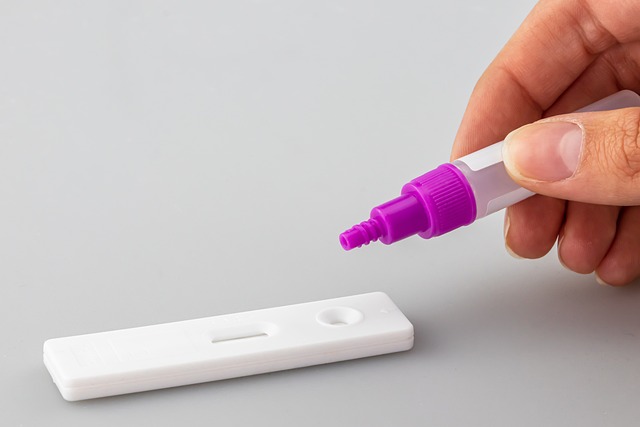Everything to Know About Paid Sperm Donation
Paid sperm donation is a process where men provide their sperm to fertility clinics or sperm banks in exchange for compensation. This practice helps individuals or couples struggling with infertility to conceive, as well as assisting same-sex couples and single women in starting families. If you're considering becoming a sperm donor or exploring this option for family building, it's essential to understand the ins and outs of the process, including eligibility requirements, compensation, and potential implications.

What are the eligibility requirements for paid sperm donation?
To become a paid sperm donor, individuals must meet specific criteria set by sperm banks and fertility clinics. Generally, donors must be:
-
Between 18 and 39 years old
-
In good physical and mental health
-
Non-smokers and drug-free
-
Height requirements vary, but typically 5’7” or taller
-
College-educated or currently enrolled in college
-
Willing to commit to regular donations for 6-12 months
-
Able to provide a detailed family medical history
Additionally, donors must pass comprehensive medical screenings, including tests for infectious diseases, genetic disorders, and sperm quality analysis.
How much do paid sperm donation clinics typically offer?
Compensation for sperm donation varies depending on the clinic, location, and donor qualifications. On average, donors can expect to earn:
-
$50 to $100 per donation
-
$1,000 to $1,500 per month for regular donations
-
Additional compensation for longer-term commitments or exceptional sperm quality
Some clinics offer bonuses for referring other donors or completing specific milestones in the donation process. It’s important to note that payment is often contingent on passing all medical screenings and producing viable samples.
Prices, rates, or cost estimates mentioned in this article are based on the latest available information but may change over time. Independent research is advised before making financial decisions.
What is the process for donating sperm at a clinic?
The sperm donation process typically involves several steps:
-
Initial application and screening
-
In-person interview and physical examination
-
Comprehensive medical testing
-
Genetic screening
-
Sperm sample analysis
-
Contract signing and legal considerations
-
Regular donations (usually 1-3 times per week)
-
Ongoing health monitoring
Throughout the process, donors are required to maintain abstinence for 2-5 days before each donation to ensure optimal sperm quality.
What are the legal implications of paid sperm donation?
Legal considerations for sperm donation are crucial to understand:
-
Donors typically sign contracts waiving parental rights and responsibilities
-
Laws regarding donor anonymity vary by state and country
-
Some clinics offer open-identity programs where offspring can contact donors upon reaching adulthood
-
Donors may have limits on the number of offspring created from their donations
-
Legal counsel is advisable to fully understand the implications of sperm donation
It’s essential to thoroughly review all legal documents and seek independent legal advice if necessary.
What are the potential long-term effects of sperm donation?
While sperm donation is generally considered safe, there are some factors to consider:
-
Psychological impact of knowing biological children exist
-
Possibility of future contact from offspring (in open-identity programs)
-
Potential for unexpected emotional reactions as donors age
-
Rare instances of genetic conditions being discovered later in life
-
Impact on future relationships or family planning
Counseling services are often available through clinics to help donors process these potential long-term effects.
How do I choose a reputable paid sperm donation clinic?
Selecting a reputable clinic is crucial for a positive donation experience. Consider the following factors:
-
Accreditation by professional organizations (e.g., American Society for Reproductive Medicine)
-
Transparency in their screening processes and compensation policies
-
Clear communication about legal implications and donor rights
-
Positive reviews from past donors and recipients
-
Comprehensive medical testing and genetic screening protocols
-
Availability of counseling services for donors
| Clinic Name | Location | Compensation Range | Key Features |
|---|---|---|---|
| California Cryobank | Multiple U.S. locations | $1,000 - $1,500/month | Rigorous screening, open-identity option |
| Fairfax Cryobank | Multiple U.S. locations | $800 - $1,200/month | College student program, genetic testing |
| Seattle Sperm Bank | Seattle, WA | $1,000 - $1,300/month | Personal donor coordinator, easy online application |
| Xytex Cryo International | Augusta, GA | $500 - $1,000/month | Worldwide distribution, donor ID release program |
Prices, rates, or cost estimates mentioned in this article are based on the latest available information but may change over time. Independent research is advised before making financial decisions.
Paid sperm donation offers a unique opportunity to help others build families while receiving compensation. However, it’s a decision that requires careful consideration of the physical, emotional, and legal aspects involved. By understanding the process, requirements, and potential implications, prospective donors can make informed choices about their participation in sperm donation programs. Always consult with medical professionals and legal advisors before committing to sperm donation to ensure it aligns with your personal goals and values.




